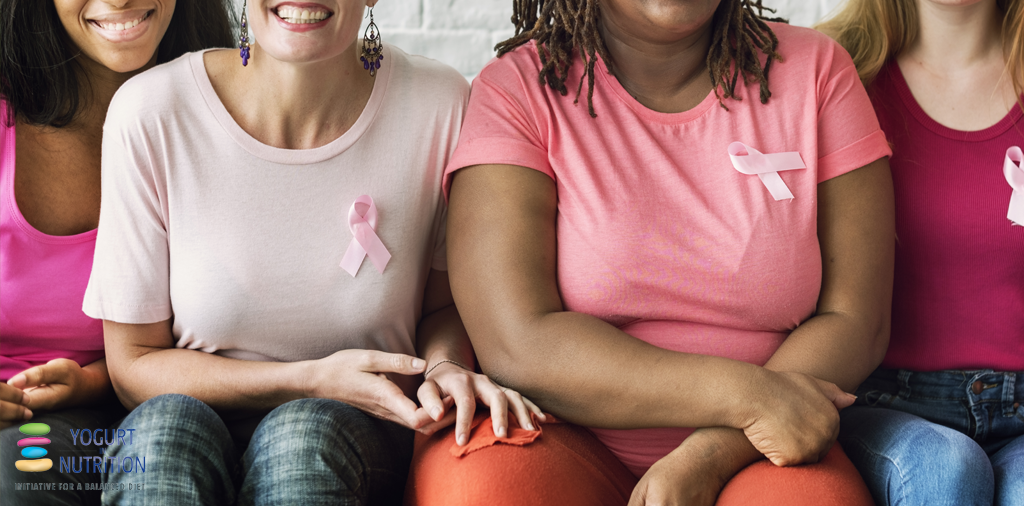Reassuring results have emerged from an analysis of studies examining the relationship between dairy products and the risk of breast cancer. The evidence suggests that women can continue to enjoy the nutritional benefits of milk and yogurt as part of a healthy diet, without fear of raising their risk of this dangerous disease.
Breast cancer is the most common cancer in women and the main cause of female cancer death. Could something as simple as eating certain foods and avoiding others help to reduce the risk of developing breast cancer?
As dairy consumption and breast cancer rates differ between countries, scientists have previously suggested that consuming dairy products might affect our breast cancer risk. However, the authors of this analysis found no link between breast cancer risk and intake of any of the dairy types investigated.
What influences breast cancer risk?
Researchers believe the development of breast cancer is influenced by many factors, including hormones, diet and alcohol intake. In terms of diet, many epidemiological studies have examined a possible association between dairy intake and breast cancer risk. However, our diets are complex and it is difficult to separate potential effects of dairy products from those of other nutrients.
Some studies have associated higher dairy intake with an increase in breast cancer risk, while others have reported a decrease in risk.
Why might dairy products influence breast cancer risk?
On the one hand, scientists have suggested that the high fat content of some dairy products, such as whole milk and cheese, might increase the risk of breast cancer. Dairy products may also contain growth factors or pesticides that could potentially increase the risk.
On the other hand, calcium and vitamin D in dairy products may actually reduce breast cancer risk, scientists suggest.
‘A main hypothesis suggesting that dairy products may reduce breast cancer risk is based on vitamin D content of these products.’ – Chen et al, 2019.
What does this new literature review show?
The authors searched the medical literature for studies published up until June 2009 that looked at milk (low fat/skimmed milk and whole milk) or yogurt consumption and breast cancer risk. They identified 8 studies conducted around the world – USA, Europe, France, the Netherlands, Norway, Finland and Japan.
The results of the studies were very variable, so the authors analysed all the data to get an overview of what might be happening. They concluded that the findings did not support a role for low-fat/skimmed milk, whole milk or yogurt in the development of breast cancer.
‘Consistently, in our meta-analysis no associations with breast cancer risk were identified for intake of low-fat/skim milk, whole milk, and yogurt.’ – Chen et al, 2019.
Where do we go from here?
The authors highlighted specific challenges in evaluating dairy products and breast cancer risk. In some countries (e.g. the USA) vitamin D is added to dairy products such as milk. As vitamin D might influence breast cancer risk, studies should consider the level of vitamin D in dairy products, the authors say. Another important issue is whether milk is obtained from cows receiving growth hormone, which potentially increases growth factor levels in milk that could stimulate cancer cells to grow more rapidly.
These questions should be addressed in large international studies so that we can gain a better understanding of the relationship between dairy products and breast cancer risk, say the authors.
Find out more: read the original article
Source: Chen L, Li M, Li H. Milk and yogurt intake and breast cancer risk: A meta-analysis. Medicine; 2019;98(12)



